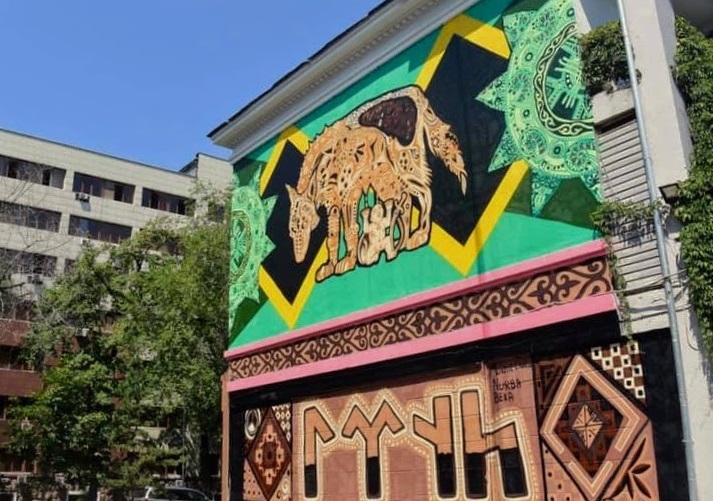Tengrian Religion in Kazakhstan
There are now more than a million citizens of the country who recognise themselves in this shamanic confession of Turkish-Mongolian origin, which is based on the worship of nature and the altenats. A petition calls for its official recognition in Astana, but many consider it only a moral philosophy. Pre-Islamic local traditions survive in Kazakhstan.
Astana (AsiaNews) - In recent years the number of Kazakhstan citizens who are adhering to the shamanic religion of Tengrism, of medieval Turkish-Mongolian ethnic origin, has been growing.
They now number over a million people, so much so that its followers have opened a petition on the epetition.kz website requesting legal recognition of their cult as one of the country's official religions.
Experts in the field are rather divided on whether they consider Tengrism to be a religion or merely a worldview, a philosophy or even a political ideology. However, the foundation of Tengrism remains devotion to nature, ancestors and the sun god Tengri.
The initiator of the petition, Erlan Espenbetov, claims that Tengrism is 'an important part of Kazakhstan's cultural heritage', and official recognition is needed for this. He recalls that 'Tengrism was the main religion of the Turkic, Uyghur and Kyrgyz Khanates, and was dominant until 1321, when Uzbek-Khan introduced Islam as the state religion'.
Tengri traditions, however, have never disappeared completely; to this day, Kazakhs still adhere to the principle of the Žeti Ata (the 'Seven Fathers'), which does not allow marriage with relatives until the seventh generation. Other examples are the belief in the Aruakhi, the protective spirits of deceased ancestors, and the Nawruz festival.
Espenbetov claims to be 'the one who had the courage to speak openly, while our scholars are afraid of not being properly understood... In order not to be condemned as a sectarian, I myself have thoroughly studied all the dimensions of the phenomenon and have written to the relevant institutions', namely the Committee for Religious Affairs, the Ministry of Justice and personally to President Kasym-Žomart Tokaev. Jurist Mereke Gabdualiev, one of the few to speak on the subject, believes that 'pure Islam has never existed in Kazakhstan, rather a cross between shamanism and Muslim laws'.
The citizens of Kazakhstan are roughly familiar with a few Surahs from the Koran, but on Fridays they traditionally bake Šelpeki, flatbreads with various fillings that do not strictly follow Koranic guidelines.
Devotion to the dearly departed, at home as well as in public places, customarily involves burningAdyraspan, a plant dating back to pre-Islamic rituals, and there are several ancient traditions that do not follow the precepts of sharia. According to the historian of religions, Ajan Oryntaj, the followers of Tengrism are very diverse, having no unifying centre and no general consensus on what the main characteristics of their cult are.
As the expert explains, 'many Tengrians do not consider this belief as a religion, but rather as a moral philosophy, while others claim to be recognised as members of a religious confession, with all the legal guarantees'. Tengrism has no sacred scriptures of its own, nor a code of religious rules and rituals. Gabdualiev warns that the danger would be the creation of a caste of pseudo-religious bureaucrats, with excessive authority over people and society in Kazakhstan.
Ajan Oryntaj emphasises that the issue is still much debated among experts, not least because there is no consensus on the definition of 'religion' in scientific circles: 'Usually, this term means a system of beliefs in some kind of supernatural forces, but this is a very general understanding of the phenomenon'. None of the institutions approached so far have given any official assessment or response to the applications and petitions on tengrism.
The petitioners aim to present at least 5,000 representatives from all regions and cities of Kazakhstan, who are referents of communities with a minimum of 300 registered worshippers, so that they will be ready to start activities at all levels as soon as any approval is obtained. Shamanism is officially recognised in Russia for the Siberian populations of Mongolian ethnicity, and Tengrism is proposed as a Eurasian expression of these traditions.







.png)










